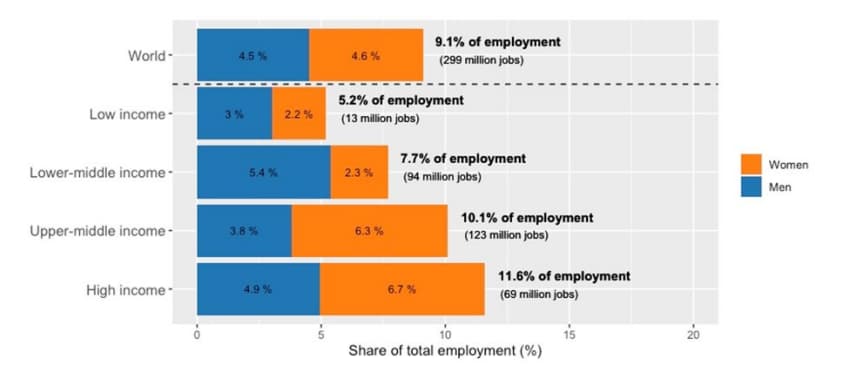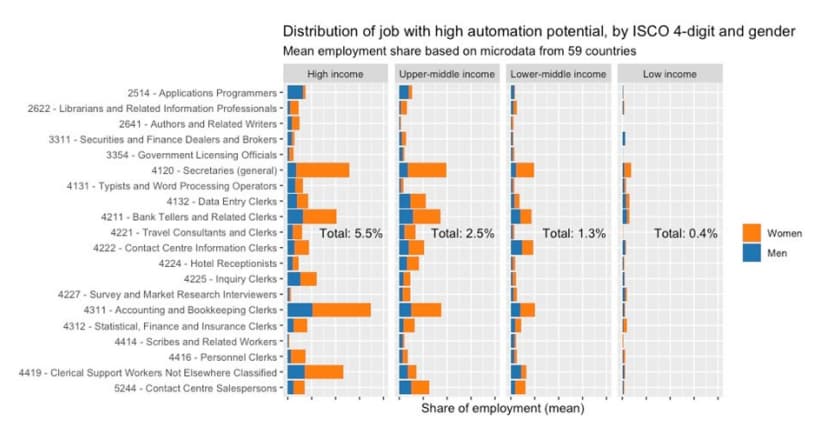In the last few months, AI (artificial intelligence) has become very common. AI is used in smartphones, cars, and many other technologies. Most people use AI every day without realizing it. Now, many people wonder if AI will take over human jobs.

The International Labor Organization (ILO) recently studied this question. They found that AI could replace humans in up to 75 million jobs globally. Many jobs are at risk of being automated by AI. This is concerning for the future of work. More study is needed on how AI will impact jobs and the economy.
The information released by the ILO shows that almost 75M jobs will be impacted by automation taking over tasks. This means that artificial intelligence has the ability to potentially replace almost 70 million people worldwide, both men and women, in their jobs.
However, the data has also shown that around 427 million jobs could be improved with the help of AI. This means AI has the ability to change the nature of jobs by working together with humans to create a future that is digitally advanced and technologically progressive for everyone.
The most important finding of this study is that the impact of AI on jobs differs based on gender. The study shows that about 21 million jobs held by women in wealthy countries are at risk of being automated.
This number is more than twice the number of jobs held by men in wealthy countries that face the same risk. The same pattern applies to women in countries with varying income levels, including those with upper-middle, lower-middle, and low incomes.

It may sound scary, but the truth is that we are already living in a world where AI is gradually replacing both our daily lives and our jobs.
According to this report by the International Labour Organization (ILO), AI has the potential to replace human typists, travel consultants, scribes, contact center information clerks, bank tellers, and survey and market research interviewers in the near future. The impact of this automation will vary depending on the country you live in and the income group you belong to.
In countries with low incomes, only a very small percentage (0.4%) of jobs held by people are at risk of being taken over by automation. On the other hand, in high-income countries, a higher percentage (around 5.5%) of jobs held by people face the risk of automation.

The good news is that there is hope for people employed in developing countries. As we move towards an automated future, there is a chance for significant skill development opportunities for people in developing countries. However, it’s important for them to take measures to mitigate the potential negative effects of automation.
Related Stories:
